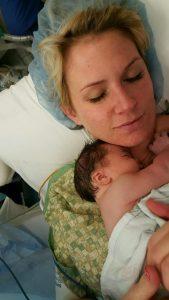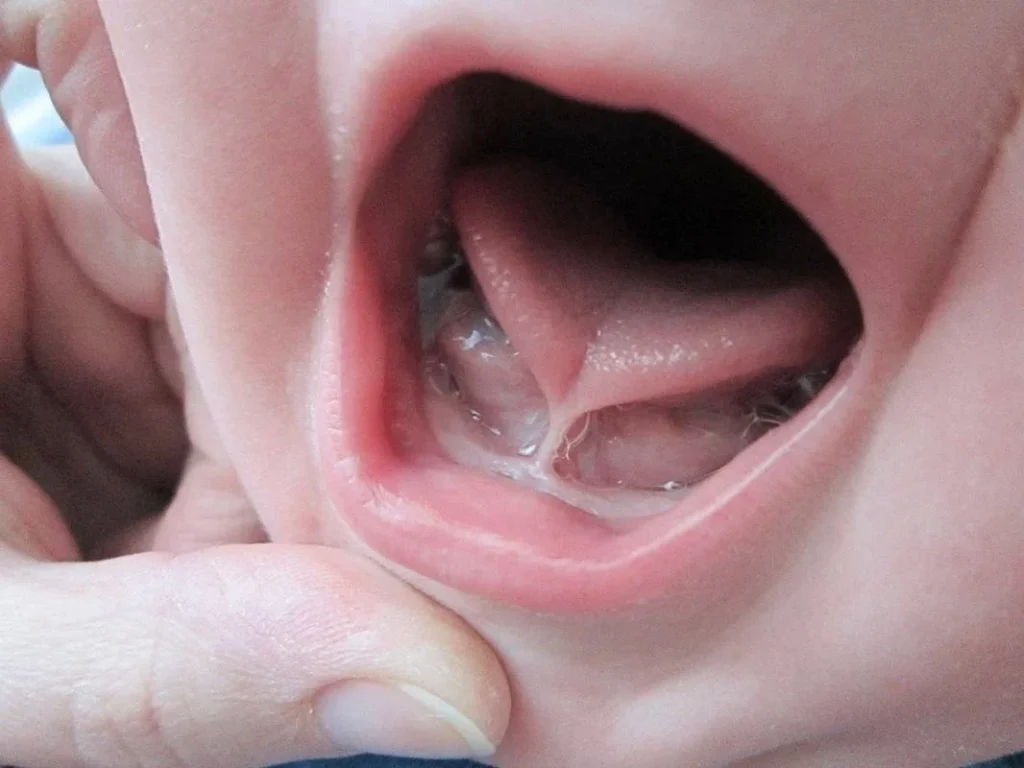
What I Wish Someone Had Told Me About Lip and Tongue Tie
A real story, expert-backed insight, and help for parents who need answers
I’ll never forget those early days. Sitting in a dark hospital room, completely drained—physically and emotionally—trying so hard to breastfeed my newborn daughter. She wouldn’t latch. And when she did, it hurt so badly I was in tears. I was cracked, bleeding, and quietly sobbing through every feed, wondering what I was doing wrong.
Everyone kept saying it would get better. “Give it time,” the nurses said. “Try a new position,” offered the lactation specialist. But nothing helped. And not once—not once—did anyone mention checking for a lip or tongue tie.
I blamed myself. Breastfeeding is supposed to be natural, right? So why did it feel so impossible?
Weeks later, after so many sleepless nights and painful feeds, a friend gently asked, “Have you checked for a tongue tie?” She had been through it herself and recognized the signs. And sure enough—my daughter had a tongue tie, which made breastfeeding a challenge to say the least.
Starting the Conversation
When we launched our Pediatric Dentist, Orthodontist & Oral Health Guide, I knew I wanted to share my story. Because if my friend hadn’t spoken up, I might’ve missed out on so many precious moments that I would have never gotten back. And no parent should have to navigate that alone.
In partnership with the Oral Tie Center of San Diego, we’re bringing more than just awareness to this issue and sharing trusted information and treatment options for families who are navigating this journey.
So let’s get started . . .
What Are Lip and Tongue Ties?
A tongue tie (medically known as ankyloglossia) occurs when the lingual frenulum—the band of tissue connecting the tongue to the floor of the mouth—is too short or thick. A lip tie affects the labial frenulum, the tissue connecting the upper lip to the gums. In both cases, movement is restricted, which can affect your baby’s ability to feed, speak, and breathe comfortably.
Signs to Watch For in Babies
Here are some common red flags that may point to a tongue or lip tie:
- Difficulty latching or staying latched
- Clicking sounds while feeding
- Nipple pain, cracking, or bleeding during feeds
- Long, unsatisfying nursing sessions
- Gassiness, colic, or reflux-like symptoms
- Slow weight gain or poor baby’s ability to stay full
- Falls asleep in the middle of feeding
- Hiccups often
- Snoring, noisy breathing or mouth breathing
- Lip curls under when nursing or bottle feeding
- Sucking blisters or callouses
- Nose sounds congested often
What to Watch For in Older Children
If untreated, ties can continue to affect children well beyond infancy. In older children, look out for:
- Speech issues or speech delays
- Difficulty with chewing and swallowing
- Preference for soft foods or picky eating
- Highly Sensitive gag reflex
- Mouth breathing, snoring, or restless sleep
- A gap between front teeth
- Teeth grinding while sleeping
- Delayed or abnormal jaw growth
Tongue Tie Treatment Options
The good news is, today’s tongue tie treatment is safe, effective, and minimally invasive. At the Oral Tie Center of San Diego, Dr. Brian Hatch—a board certified pediatric dentist—uses a state-of-the-art LightScalpel laser for tongue tie releases and lip tie corrections. This simple surgical procedure is performed with precision and care to free the tight frenulum, restore oral function, and promote healthy development.
For infants, the procedure typically requires only topical anesthetic and involves minimal bleeding or discomfort. The entire process takes just minutes and is followed by personalized aftercare support to aid in the healing process.
What truly sets the Oral Tie Center apart is that they’re not a pediatric dental office that also offers tie releases—they’re a dedicated lip and tongue tie specialty center, 100% focused on diagnosing and treating oral ties with a comprehensive, whole-family approach.
They offer:
- Pre and post-procedure consultations
- Referrals to lactation consultants and feeding specialists
- Support from speech-language pathologists for long-term care
- Guidance for navigating each stage of the healing process
If you’re struggling with feeding, speech, or unexplained discomfort, reach out to the trusted team at the Oral Tie Center of San Diego.

Learn More or Schedule a Consultation
Visit the Oral Tie Center of San Diego to learn more about tongue tie releases, signs to look for in your child, and personalized treatment options. Whether you’re navigating breastfeeding challenges or noticing speech delays in your child, the right support can make all the difference.
Don’t forget to check out our Pediatric Dentist, Orthodontist & Oral Health Guide and if you or your child experienced a lip or tongue tie we would love to hear about it. ⤵️



















